
The Impact of AI in HR: Challenges & Opportunities
Each quarter, we ask our HR-specialist network which topics are front-of-mind and will be of value to explore. At present, unsurprisingly, the No.1 topic cited is AI; more specifically how it is likely to impact HR departments and the wider organisations they are part of.
Implementing AI may mean that fewer people will be required to complete the same volume of work, of that organisations need to redesign disrupted roles – a potential positive where the roles created encompass a broader range of tasks, offering more stimulating work and a more compelling employee value proposition. New, highly specialised jobs will emerge, requiring a blend of business and technological acumen. Additionally, performance expectations will increase and organisations that are slow to adopt this approach risk losing out to the competition.
As AI impacts how employees interact with HR teams and the technologies they use, a shift in the structure of HR departments and roles becomes likely.
It is expected that generative AI will improve efficiency in HR and, in turn, employee experience, though in parallel HR teams will need to consider potential pitfalls relating to data accuracy and privacy.
Most businesses we engage with are taking the first tentative steps in leveraging AI at an organisational level and are still looking to understand what impacts will result, for their workforce, their talent strategy and the HR function generally. Whilst there’s no need for alarm, the field is evolving rapidly so it’s worth considering the implications sooner rather than later.
If you’re considering the future skills landscape for your HR team or wider business in response to recent developments in AI, do drop us a line to discuss further: [email protected]

HR Recruitment 2024: Organisational Culture and Transformations
In Keely Straw's previous article, she delved into Organisational Culture & Recruitment Excellence, including the importance of fostering a strong and positive organisational culture. Such approaches not only contribute to employee satisfaction and retention but also serve as a crucial factor in attracting top-tier talent. This notion remains at the forefront of HR recruitment discussions looking ahead into the year.
Building on this theme, in March 2024 we hosted a successful networking event in Basel, bringing together local HR professionals to discuss and address current challenges within the current landscape.
The event served as a platform for meaningful conversations on both a professional and personal level, with guests exchanging insights and experiences, many of which further emphasised the importance of nurturing a positive working environment to attract and retain talent. It became evident that the predominant topics of discussion revolved around Organisational Culture & Transformations, as attendees delved into the nuances of shifting mindsets towards novel work methodologies, particularly emphasising the significance of hybrid working.
We received overwhelmingly positive feedback from guests. If this mail was forwarded to you, do please get in touch, as we will inevitably hold more events in key cities and would be happy to have you join us to network with your peers.

More International Businesses Moving to Switzerland
As a recruiter, EMEA Recruitment has always been close to new companies setting up in Switzerland and has enjoyed helping them grow. Mike Baldwin, Associate Director, discusses the market in more detail...
Over the last few years, this market has experienced uncertainty and turbulence, which has led to hesitance in the market, resulting in a slowdown of new companies moving to Switzerland between 2020 and 2022.
However, the winds are changing, and momentum is growing - we are very much experiencing an influx of new international businesses to Switzerland. This has created excellent opportunities for those at all levels, as businesses set up new offices and establish Swiss headquarters.
Most recently, our recruitment teams have successfully sourced top talent for multi-national businesses creating their headquarters in the country.
Some of the benefits of relocating or setting up a business in Switzerland include the political and economic stability, its strategic position at the heart of Europe, and competitive corporate tax rates.
Furthermore, Switzerland offers a skilled workforce, and its educational system is renowned for producing well-trained workers. Current in-demand professionals are those who have local expertise and knowledge, who can build business functions with an international outlook.
However, if you have found it difficult to make the next career step over the last few years, you are not alone, and this is typical in the market we have experienced. Fortunately, we feel that 2024 will be a year of opportunity for finding highly rated accounting jobs, supply chain jobs and finance jobs in Switzerland.
Growing industries we have identified span across fintech, life sciences and biotechnology, AI and machine learning, smart manufacturing, and environmental and sustainability consulting. It's important to note that Switzerland's business landscape can vary by region, with major business hubs in cities like Zurich, Geneva, and Basel.
If you’d like to discuss setting up a new team or finding a new role yourself, please reach out to me and I will be happy to help: [email protected]

Q4 2023 HR Recruitment Market Update
As we head into the final quarter of the year, Katie Insley, Associate Director, sheds light on the HR recruitment market and its future...
HR conversations continue to focus on the future of the function, how HR technology will shape this from a service and process perspective, and how artificial intelligence will be further adopted and integrated.
Advancements in HR technology and AI have the potential to make many of the tasks undertaken by people today redundant but, at the same time, have the potential to create new roles more suited to a data-driven and digital world.
Over the last quarter, we’ve continued to see an increase in HR jobs around HRIS Optimisation, HR Data Consultancy, People Analytics and Talent Analytics, all which require a technical mindset, a customer focus, and the ability to engage with stakeholders and be a great storyteller.
The continuing evolution of HR technology can however create a level of anxiety in the workforce and businesses need to take action. It is important for organisations to understand how these changes may impact the current workforce and their levels of engagement. Employees may be concerned about the security of their role but, if a company starts to act now, the changes can be seen as an opportunity, as opposed to a concern.
If a business is able to identify how HR technology and AI will change the roles and talent required in their organisation, they will have enough time to understand the skills gaps. They’ll be able to put measures in place to retrain the current workforce, therefore retaining employees, increasing employee loyalty and engagement, creating more effective succession plans, and ensuring the business has the skills needed to be successful in the ever-evolving modern world.
Many of our Executive Interviews explore this topic, as it’s clearly on the minds of HR leaders. It was also a topic of conversation at our recent CHRO dinner. This was such a great opportunity to bring together a group of HR executives to discuss pertinent issues in the HR space, sharing experiences and challenges. If you’re interested in being involved in future HR leadership events, do reach out: [email protected]

How to Manage the Counteroffer
Companies are fully aware that we are in a candidate-driven market, with a shortage of good quality candidates to fill their hiring requirements.
As a result, businesses are trying to hold onto as many strong employees as possible, causing an increase in counteroffers.
Since the start of the year, the Finance & Accountancy market has seen employees being offered an uplift of €10,000-20,000 - in some cases over €25,000 - to stay with their current employer.
If you’re currently thinking about changing roles, you should expect to receive a counteroffer if you hand in your notice. Whether you’ve been working at your company for six months or several years, they will do more than ever before to keep you.
Prior to looking for a new role, here are some questions you should be asking yourself:
- On a scale of 1-5, how happy are you in your current role?
- What is the real reason for wanting to leave?
- What conversations can you have with your current employer?
What should you be thinking when the counteroffer arrives?
- Why is your employer only realising your value now?
- Will you be a trusted member of the team moving forward?
- What if you accept the counteroffer? What if you decline it?
But, most importantly, revisit these simple questions:
- On a scale of 1-5, how happy are you in your current role?
- What is the real reason for wanting to leave?
Always think about the real reason you are looking to approach the market in the first place.
Did you know that a high percentage of people who take a counteroffer re-approach the market within a few months?
Does being counteroffered actually make you feel good? Does it make you feel like a valued member of the company, or does it make you feel the opposite in reality?
Think about whether the counteroffer provides a genuine benefit to you or to the employer. For example, keeping you on board means they won’t have to train someone new, pay potential recruitment fees, etc.
If you’d like more advice on managing a counteroffer, either as a hiring manager or candidate, please get in touch with David Harper, Associate Director: [email protected]

The Importance of the Employee Experience
Katie Insley, Associate Director, explores the second quarter of the year and discusses the uplift in HR opportunities across the Netherlands.
There have of course been significant challenges in some industries, but many have reported growth plans, especially in the second half of the year.
We continue to be in a candidate-led market where the competition for talent is still significant. Businesses must place attention on their employee value proposition in a bid to keep their best people, ensuring they have a working culture and environment that responds to their employees' needs, such as hybrid/flexible working and employee wellbeing initiatives.
We also continue to see an investment in Compensation & Benefits functions, as rewarding employees in a competitive and attractive way remains a key tool to retain top talent.
A good number of organisations have gone through reorganisation activities, and - while this has led to decreases in some traditional HR roles - it has caused an increase in the positions more aligned to the future of HR and where it can add the most value to a business.
These have included roles focused on talent and HR intelligence, where businesses are looking for individuals who are great with data, but who can translate this information into meaningful stories that allow for better decision making.
A focus on HR technology continues, but through the lens of employee experience. How can a business have seamless processes enabled by tech that make an employee’s interactions with HR as easy as possible? This again requires a different skillset, where individuals must not only be great at system optimisation and process improvement but must be able to focus on the user experience, too.
If you’re interested in finding out more about the current recruitment landscape, please reach out to me at: [email protected]

EMEA podcasts
The EMEA Recruitment podcast welcomes guests from across our network and beyond to share their career journeys, advice, and inspirational stories.





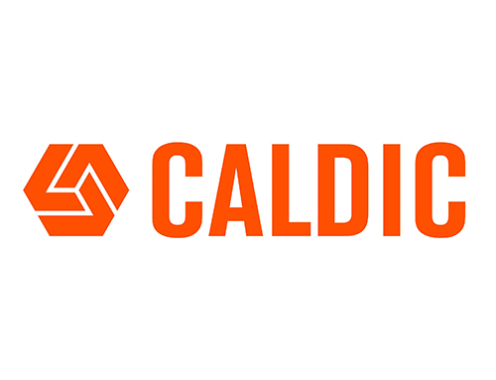

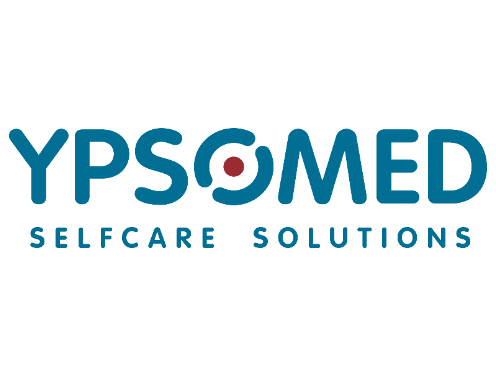

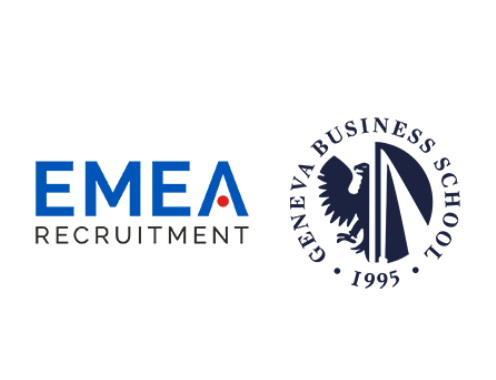
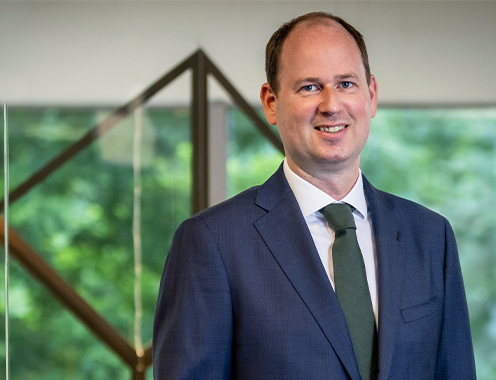




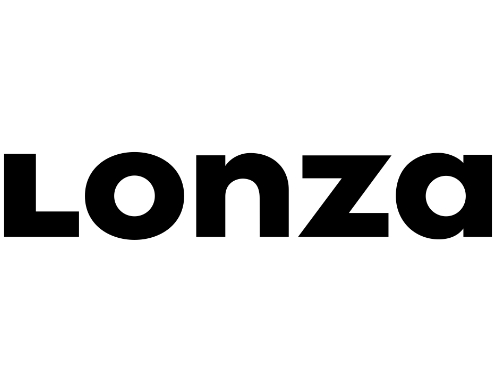


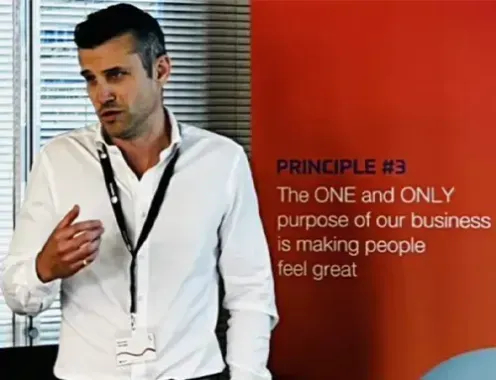
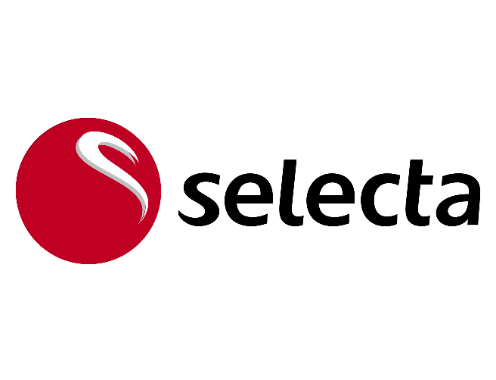




You can also use your social account to sign in. First you need to:
Accept Terms & Conditions And Privacy Policy